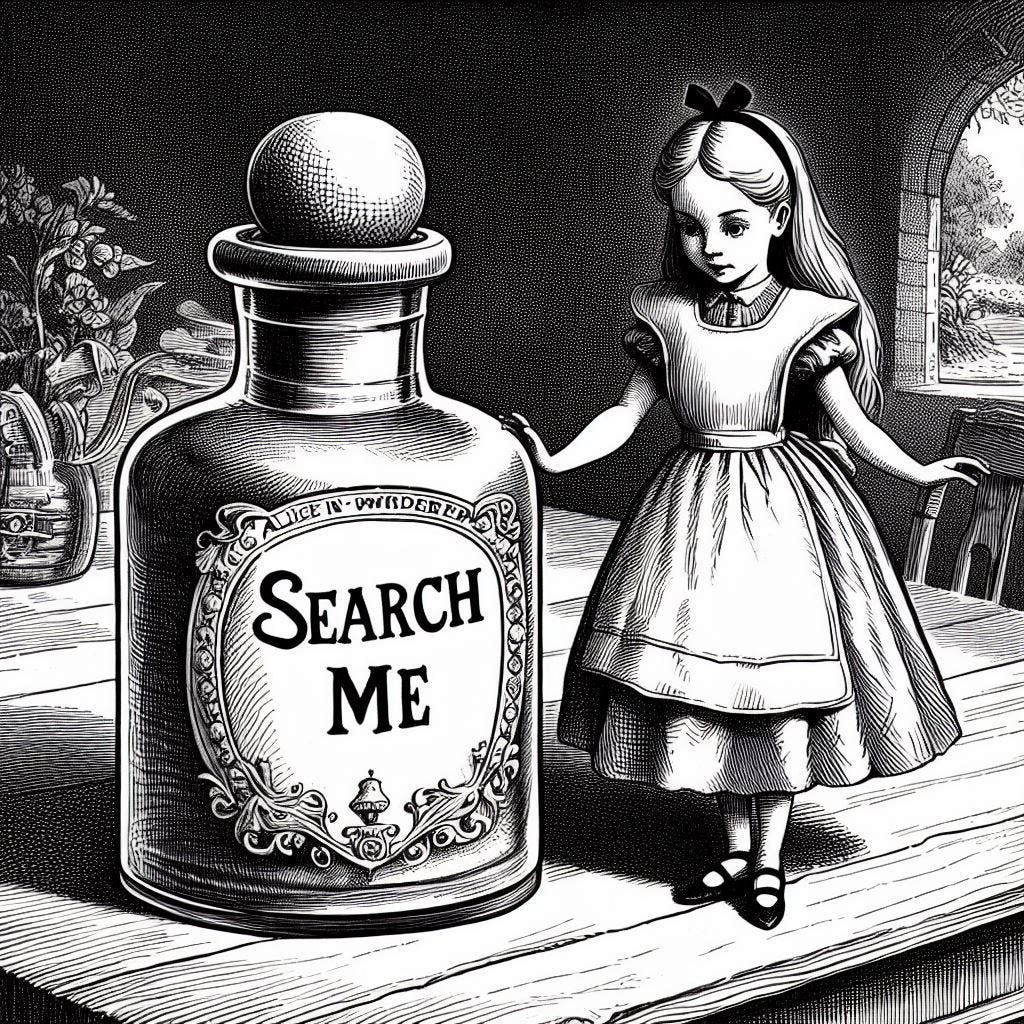Ask a librarian - Can you search and do research with AI tools like ChatGPT?
No. Searching for facts, information, or real world answers with tools that use Generative AI - such as Google AI Overviews - doesn’t work - and it will never work. _______________________________________________________________________
There’s a serious amount of nostalgia lately for the days when the Internet was a wilder, more innocent place full of independent voices and creative chaos. But it’s a mistake to romanticize that (not so remote) digital past. The untamed Internet was just as full of garbage opinions, conspiracy theories, and rank misogyny as it is now. The stuff was just harder to find - you had to stumble across it or forge your own path.
Now, out of the monoculture of SEO junk and ads, comes GEN AI search via Google. Google AI Overview is uncovering all of the lost, lush forests, along with the wastelands, of the information eco-system - for those who miss it. By resurfacing and remixing the good and the bad - telling people to eat rocks for their health, put glue on their pizza, and dispensing possibly dangerous health information - AI search is taking information anarchy to new levels.
When Google search was introduced in 1998, the foundational idea was to bring a semblance of order to the growing tide of information before it overwhelmed human comprehension. Other search engines existed at the time, but they were based on old models. ARCHIE is the oldest online search engine and it also uses the most archaic form of information organization. A simple list with a top-level description without any clue about the contents of the box – or digital file.
Early versions of the Yahoo search portal used subject categories and hierarchies. This type of organization was based on an invention from the 1880s – the library card catalog. – later migrated into MARC – or machine-readable cataloging. Library index cards (and MARC records) include subject, title, author and publication date. Lists were fine for the manuscripts of previous eras. They needed no such categories because “title’ and publisher” were not part of the information object. Only the rise of book publishing, especially mass book publishing, demanded these distinctions.
New forms of information force new forms of information organization. Google introduced an entirely new way to search that incorporated an essential element of digital information entities that hadn’t existed before into the discovery process – the hyperlink. Suddenly, users didn’t have to scroll through lists of human curated categories, subject headings, or hierarchies based on prior forms of information. Search became intuitive and dynamic. Users were drawn into a human-created, collaborative, living web of undefined orientation and (near) infinite multiple pathways and relationships.
Why did Google win the search engine wars? Nobody knows, but they did. The tool might have delivered “better” results - more relevant, more focused - but the intangible reasons that users became mesmerized have been overlooked.
Google search looked so new and felt so different to use that it seemed to work like magic. Exploring this new landscape of complexity and interconnectedness was seductive, especially when the paths you created evolved in sync with your own interests. This led to rabbit holes, but also results that were mysteriously compelling. Discovery was the point and there was no end to it. This process is possibly addictive, as things are when rewards are random.
Other early search engines, in addition to their difficult to negotiate subject trees, were buzzy, spammy, juvenile, and fundamentally unserious. Google, in its simplicity, was an enigma that incited curiosity and novelty-seeking (also addictive impulses).
Lastly, the black-box design exuded the authority of the unknown. The clean, uncluttered interface had an air of mystery. It was like one of the minimally labeled bottles in Alice in Wonderland. It said simply “search me” – and so we did.
Eventually we were captured completely and then Google faded into the background, as happens when our psyches and tools align. Google became the default.
When information organization systems merge into their host and mature, they feel inevitable, eternal. We can barely imagine any other way to arrange the visible manifestations of our thought and/or access the databases of our intentions and desires. But these systems are never as stable or as constant as we think. Even in ancient times the physical library was not an entirely still point of the turning world. It only seems like it to us now as we look back on the frozen past. A library, as an information organization system (and like all human created systems is a living thing.
Google search disappeared into its ubiquitous simple search box on white space and became a verb and we forgot that this order was not the only order. More importantly Google forgot the reasons (if it ever knew them) why we had so thorough fused to the Google-verse. They made the mistake of thinking their own creation was unbreakable - but it’s not. AI is breaking it.
Collaboratively created connections were the new order that Google built its search empire on. AI severs those connections and all connection.
AI Overview is not a discovery system or a system of information organization and order. It’s an engine of anti-order and anti-search.
AI finds things only to break them up and reanimate them. It’s not search, but search and destroy, and only then rebuild. Page-rank and the density of relationships mean nothing. The best of human thought and the worst mix of ads and SEO garbage are tokenized and then reconstituted as new content that lacks all context. Even AI-generated junk is fed back into the system. AI can’t help but eat its own tail.
AI overview breaks old categories too, the top-down human-curated hierarchies and taxonomies. Nonsense that sounds like sense is really hard to classify. It fits nowhere and everywhere at the same time.
AI gives “good enough” information. A good-enough result, severed from intention, location (even if virtual), or context is worthless. A good enough answer that can dissolve and re-mix itself into another good enough answer endlessly is a nightmare vision.
Search was never about finding answers. And nobody asked for this. AI overview only gives answers, usually one answer. It doesn’t give guidance, or suggestions, or discovery pathways like a page of traditional search results. Having an instant answer kills curiosity and there’s no incentive to explore, to go further. AI is a thought terminating technology when used for search.
The elements that captured our attention in the original Google search, curiosity, mystery, authority and connection, are absent with AI search and in AI generated responses. It’s not even search as we know it, and it will fail as search even if AI lives on in other forms.
It’s not an entirely bad thing. Impossible, absurd, and worthless “good enough” AI answers have destroyed the infallibility illusion around Google search. Google’s stranglehold on our trust and our credulity have been broken.
It’s uncovered that lost wild country in all of its worthlessness and weirdness and strange beauty. It’s about time.
[






I was about ready to throw digital hands thinking that AAL was talking about SearchGPT (more human-driven, and deliberately at the mercy of the user). But this takedown of the Google AI Overview is phenomenal. It reminds me of the “Situating Search” paper by Bender and Shah : https://dl.acm.org/doi/10.1145/3498366.3505816